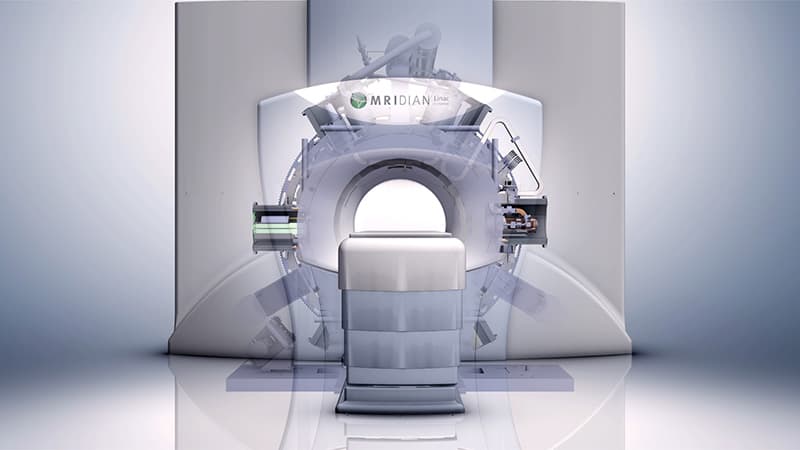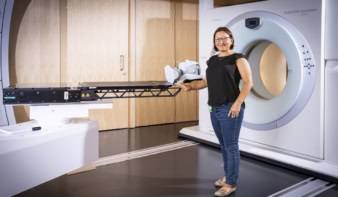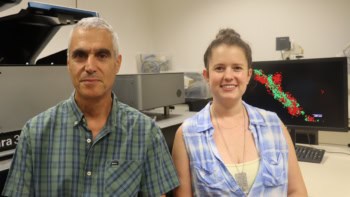Available to watch now, a Women in Medical Physics webinar exploring how to begin a new MR-Linac program for MRIdian in your radiation oncology department
Want to learn more on this subject?
 From Laura Bassi to Marie Curie, for centuries, women have been making important contributions to the world of physics. Now with ViewRay’s MRIdian system, women are leading the charge in bringing the latest advancement of MRI-guided radiation therapy to the forefront of radiation oncology and expanding the medical physics landscape.
From Laura Bassi to Marie Curie, for centuries, women have been making important contributions to the world of physics. Now with ViewRay’s MRIdian system, women are leading the charge in bringing the latest advancement of MRI-guided radiation therapy to the forefront of radiation oncology and expanding the medical physics landscape.
MRIdian is the world’s first radiation therapy system to integrate a diagnostic-quality MRI with an advanced linear accelerator and the only system with MR-guided, real-time, 3D, multiplanar soft-tissue tracking and automated beam control. MRIdian offers precise and personalized care through on-table adaptive treatments without the need for fiducials. The technological foundations of MRIdian allows for the delivery of ablative dose with tighter margins in five or fewer fractions, all while maintaining low to no toxicity. With tens of thousands of patients treated, and an ever-growing body of clinical evidence, MRIdian is leading the MRI-guided revolution in radiation therapy.
This series of five webinars will specifically highlight women physicists across the globe that are using MRIdian to transform cancer care as we know it. Daphne Levin from Assuta Medical Center in Tel Aviv, Israel, will begin the series with “Implementing MRIdian into the Clinic”. Daphne will demonstrate what it takes to set up a successful MR-Linac program with efficient adaptive workflows.
This presentation is the first in a series of Women in Medical Physics, supported by ViewRay.
Want to learn more on this subject?

Daphne Levin has been the chief of physics at the Department of Radiotherapy at Assuta Medical Centers since the department was established in 2007. Prior to that she was chief medical physicist at the Rabin Medical Center. She obtained her PhD in medical physics from the Tel-Aviv University, in co-operation with the University of Chicago, and was a postdoctoral fellow at the University of Chicago for two years. Daphne has been ABR certified since 2005. When she’s not hard at work treating patients on the MRIdian system, she enjoys surfing, running, trekking and kayaking.




